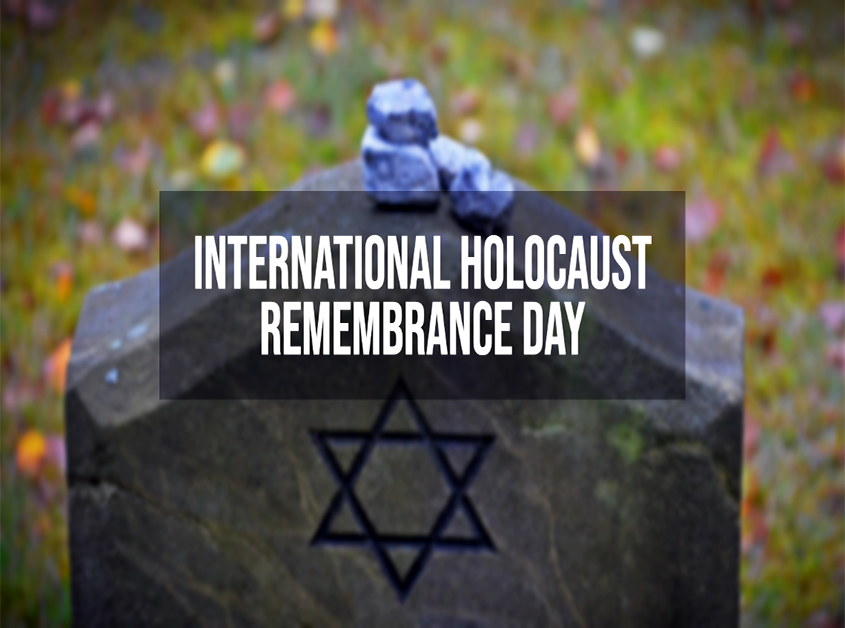The International Holocaust Remembrance Day is celebrated by the UN General Assembly on November 27, 2005 (resolution № 60/7) every year on January 27. In 2011, the Verkhovna Rada of Ukraine decided to mark January 27 as the International Holocaust Remembrance Day in Ukraine at the state level (VRU Resolution 8605 of July 5, 2011).
It was on this day in 1945 that the Red Army freed the prisoners of Europe's largest Auschwitz-Birkenau death camp in Oświęcim, Poland, a horrific symbol of the Holocaust and Nazi atrocities in World War II. It is deeply symbolic that the camp was liberated by unit I of the Ukrainian Front under the command of Major Anatoliy Shapiro, a Ukrainian Jew born in Kharkiv region.
The tragedy of the Holocaust is an integral part of Ukraine’s national history and memory. It was on Ukrainian soil that the Nazis and their allies killed more than 1.5 million Ukrainian Jews (one in four of the more than 6 million Holocaust victims).
Long before the Nazis used the diabolical technology of killing in Auschwitz's gas chambers, more than 23,000 people were killed near Kamianets-Podilskyi in August 1941. Within a month, at the end of September, the Nazis killed nearly 34,000 Kyiv Jews in Babyn Yar, and the very name of the previously unknown outskirts of the Ukrainian capital became a terrible symbol of the Catastrophe. Botanical Garden in Dnipro, Powdery warehouses in Odesa, Sosonky near Rivne, Bogdanovka and Domanivka in Mykolayiv region, Drobitsky Yar in Kharkiv, salt mines in Bakhmut, Birch Moat in Chernihiv region… There is no city in Ukraine that does not have its own "Babyn Yar" . The victims of some of them are still awaiting due respect.
Declaring January 27 International Holocaust Remembrance Day, the UN General Assembly called on member states to develop educational programs to help future generations preserve the memory of this tragedy in order to prevent future acts of genocide.
Independent Ukraine is the first country in the post-Soviet space to introduce compulsory study of Holocaust history in school history courses.
Every Ukrainian pupil and student gets acquainted with the bitter lessons of the past, so that humanity will not repeat them in the future. For eighteen years in a row, the Ministry of Education and Science of Ukraine together with the Ukrainian Institute for Holocaust Studies "Tkuma" is successfully implementing a very important project – International creative works contest "Lessons of War - Lessons of Tolerance". The Holocaust showed as sharply as possible what unlearned lessons can turn into for humanity - intolerance, hate speech, lack of respect for others, misunderstanding of the value of every human life.
Library of Museum "Jewish Memory and Holocaust in Ukraine" offers readers a wide range of scientific, popular science, methodological, educational literature on the history of the Holocaust in Ukraine and Europe. You can get acquainted with the publications by following the link to the electronic catalog of the library's funds.
Every year "Tkuma" Ukrainian Institute for Holocaust Studies prepares scientific publications on the history of the Jewish people in Ukraine, the Holocaust in Ukraine, interethnic relations, publishes memoirs of eyewitnesses to the Holocaust tragedy, publishes methodological and educational literature on the Second World War. and the Holocaust in the school history course and more. We offer to get acquainted with the specified literature on our website.
We also offer thematic videos (in Ukrainian) dedicated to certain aspects of the history of the Holocaust (including Dnipro), posted on the Youtube channel of Museum:
- «Tragedy of Dnipropetrovsk Jews»;
- «The last violin of Auschwitz»;
- «Kristallnacht. Catastrophe Eve».
